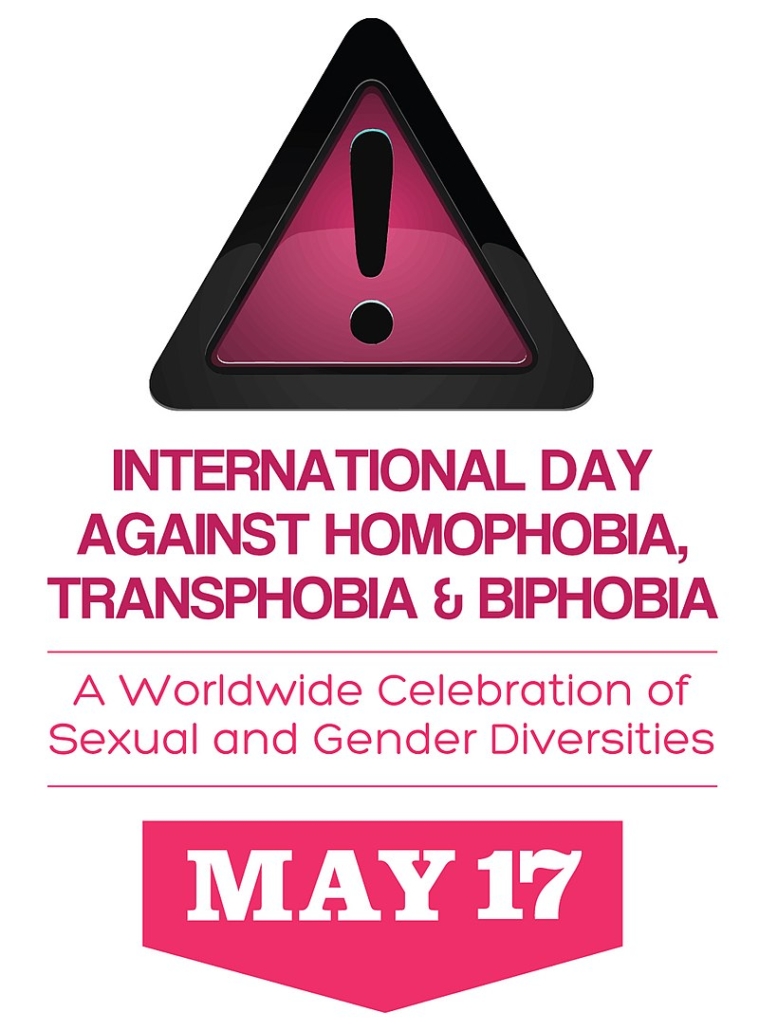Today, 17 May, marks the International Day against Homophobia, Biphobia and Transphobia (IDAHOBIT).
 Today, 17 May, marks the International Day against Homophobia, Biphobia and Transphobia (IDAHOBIT). The International Day Against Homophobia, Transphobia, and Biphobia (IDAHOT) is an occasion that reminds us how violence and discrimination experienced by lesbian, gay, bisexual, transgender, queer, nonbinary and other identities (LGBT+) have adverse effects on health. Homophobia and transphobia are manifested in inequalities ranging from structural to those experienced by individuals. The hostile situation in dozens of countries towards LGBT+ people exposes them to social vulnerability, leading to health problems. Specifically, in virtually all parts of the world, including places with generalized epidemics, HIV prevalence is highest among men who have sex with men and transgender women. There are numerous economic injustices related to homophobia and transphobia and their effects on job accessibility. This shows that the vulnerability of people with diverse sexual orientations and gender identities is closely related to sexual health problems.
Today, 17 May, marks the International Day against Homophobia, Biphobia and Transphobia (IDAHOBIT). The International Day Against Homophobia, Transphobia, and Biphobia (IDAHOT) is an occasion that reminds us how violence and discrimination experienced by lesbian, gay, bisexual, transgender, queer, nonbinary and other identities (LGBT+) have adverse effects on health. Homophobia and transphobia are manifested in inequalities ranging from structural to those experienced by individuals. The hostile situation in dozens of countries towards LGBT+ people exposes them to social vulnerability, leading to health problems. Specifically, in virtually all parts of the world, including places with generalized epidemics, HIV prevalence is highest among men who have sex with men and transgender women. There are numerous economic injustices related to homophobia and transphobia and their effects on job accessibility. This shows that the vulnerability of people with diverse sexual orientations and gender identities is closely related to sexual health problems.
Structural homophobia and transphobia are responsible for the lack of positive representation in media, the lack of diverse content in sexuality education provided in schools, the lack of sensitization of health personnel to provide friendly services to LGBT+ people, and the criminalization of same-sex sexual practices and gender expressions that disrupt traditional sex roles. At the individual level, homophobia and transphobia are expressed within the family, school and work environments. The resulting mental health effects can be associated with increased suicidal ideation, stress and anxiety, as well as internalized homophobia and transphobia, leading to increased vulnerability to HIV, sexually transmitted infections and substance abuse. The current increase in sexualized drug use—or chemsex—among gay and bisexual men worldwide also contributes to increases in HIV and other infections, such as hepatitis C. Problematic drug use may be associated with experiences of discrimination and violence related to the rejection of their sexual orientation. In the case of transgender people, particularly transgender women, the educational, economic and social precariousness derived from transphobia places them at exceptionally high risk of contracting HIV [13] and experiencing multiple other difficulties, such as substance abuse and lack of access to health services, including those related to mental health and gender-affirming treatments.
The recent Mpox outbreak reminded us that stigma and discrimination exist even in the most LGBT+-inclusive countries, and that affected communities can make a positive difference in collectively responding to health issues that impact them. Gay and bisexual men rapidly mobilized to face this new challenge, just as was done 40 years ago to respond to HIV in the face of slow government action and indifference [15].
The problem is that communities cannot mobilize if criminalized and persecuted. Nor can they do so if they do not have the resources to have a place to live or to feed themselves. This is why breaking down structural and individual barriers that prevent LGBT+ people from organizing and defending their rights is necessary. Every step backwards in human rights will be a step back in the response against HIV.
